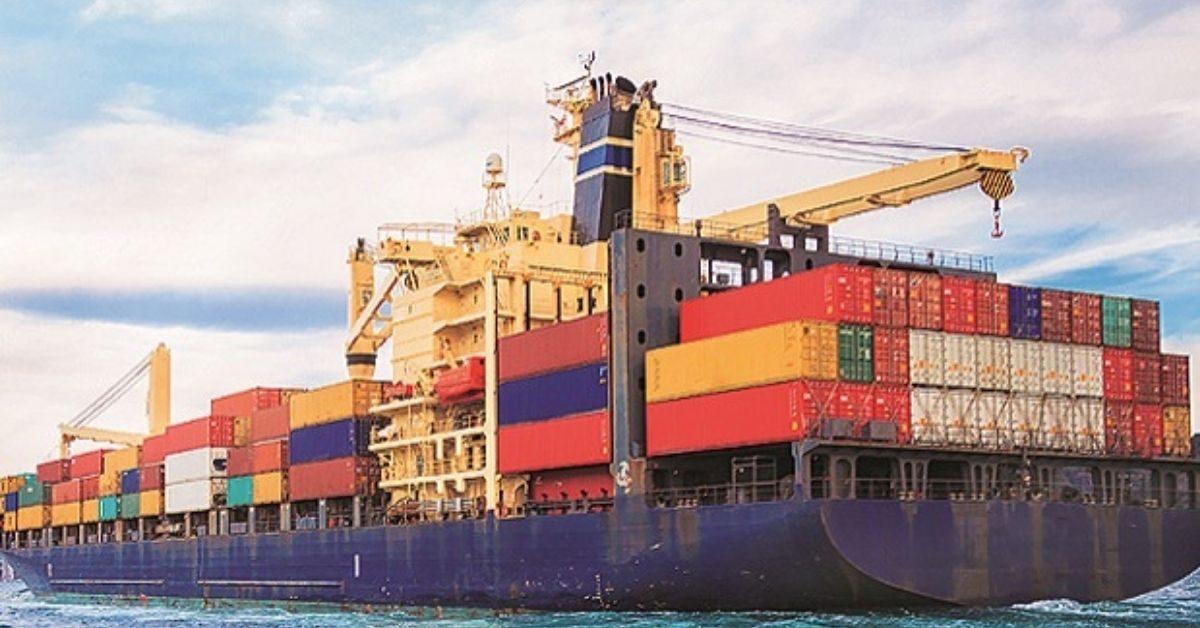Source: SPLASH247
Splash has been reporting regularly on the increased emissions from the huge diversions shipping has been making over the past six months as the security situation in Middle Eastern waters deteriorated in the wake of Israel’s war in Gaza.
The Xeneta and Marine Benchmark Carbon Emissions Index (CEI), which measures carbon emissions per ton of cargo transported across the world’s top 13 trades, hit 107.4 points in Q1 2024 – the highest it has been since the index began in Q1 2018. For containers being shipped via ocean from Asia to the Mediterranean, the CEI reveals carbon emissions increased by 63% in Q1 2024 compared to Q4 2023. From Asia into North Europe, carbon emissions increased by 23%.
Containers being shipped to the Mediterranean from Asia travelled 9,400 nautical miles on average in Q4 before the escalation in the Red Sea. They are now sailing an additional 5,800 nautical miles due to diversions around the Cape of Good Hope in Africa, with the inevitable consequence of more fuel being burned.
Ships are also being sailed at higher speeds in an attempt to make up time due to the longer distances, which again results in more carbon being burned.
Emily Stausbøll, Xeneta market analyst, said: “We are all aware of the human and economic cost of war, but this data demonstrates there is also price to pay for the climate.”
Data released by Xeneta also reveals disruption in the Red Sea has pushed some shippers into using air freight to protect supply chains.
With the largest ocean freight carriers still choosing to avoid the Red Sea, cargo from Asia is now arriving via ocean at ports such as Jebel Ali in the Arabian Gulf before being flown out of Dubai Airport for onward transportation to Europe and North America.
As a result, air cargo demand from Dubai Airport to European destinations increased by 190% in March compared to the same month in 2023.
Stausbøll said: “Not only is air freight more expensive than ocean freight it is also far less sustainable, so this shift to hybrid sea-air services via the Middle East will result in increased carbon emissions per ton of cargo transported.”
Shippers are also now once again using rail services through Russia to transport goods from Asia to Europe, which similarly to air freight, is more carbon-intensive than ocean freight shipping.
Putting some perspective on just how enormous the rerouting of global trade has been in the wake of the Houthi attacks in and around the Red Sea over the past six months, Lars Jensen, founder of liner consultancy Vespucci Maritime, crunched some astronomical numbers earlier this month.
Major containerlines have eschewed the Suez Canal route for voyages between Asia and Europe, preferring to take the safer, longer voyage around the Cape of Good Hope. Vespucci Maritime data suggests this has added an additional distance of around 6.5m km.
“Every single week the added sailing distance is more than the distance to the moon,” Jensen wrote in a post on LinkedIn.
Another Danish consultancy, Sea-Intelligence, suggested earlier this year shippers might experience a more than five-fold increase in CO2 emissions per container shipped thanks to the Red Sea Shipping crisis.
The longer journeys are also having an impact for a ship’s Carbon Intensity Indicator (CII), as well as the newly introduced emission trading scheme from the European Union (EU ETS).
Adding to the cumulative extra liner carbon footprint, Mediterranean Shipping Co, which is the only global liner to operate Israel-linked containerships in the Persian Gulf, has announced it is moving these ships to alternative routes following the seizure by Iranian forces of the 15,000 teu MSC Aries 11 days ago.







